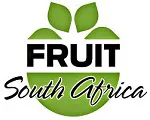With a Gini coefficient of 0.65, South Africa is hard-pressed to put food on people's tables, to mitigate inequality. Statistics South Africa reports that about 2.1 million South African households experienced hunger in 2021, mostly due to unemployment, the rising cost of food, and the prevailing energy crisis. This underscores the responsibility of the agriculture sector of South Africa – and naturally, the fruit industry – in terms of sustainable food production.

Fruit South Africa celebrates its 10th anniversary this year, being instrumental in facilitating the effectiveness of the export-oriented fruit industry, particularly when it comes to critical trade negotiations at government level. As an umbrella body, Fruit South Africa represents the interests of the fruit industry through close collaboration with our government and regular liaison with the industry associations that it represents (viz. Berries ZA, the Citrus Growers’ Association of Southern Africa, the Fresh Produce Exporters’ Forum, Hortgro, the South African Subtropical Growers’ Association, and the South African Table Grape Industry).
Fhumulani Ratshitanga, CEO of Fruit South Africa: “Within the open economy of South Africa, imports and exports constitute significant numbers. Largely owing to its nearly 325 000 on-farm workers, the fruit industry trades 60% of its fruit with more than 100 countries worldwide, injecting much-needed foreign currency into the local economy. During the 2021/22 season the industry recorded a total production value of R63 654 440 (from 203 989 ha under fruit production).” But maintaining and increasing these significant numbers comes with certain prerequisites.
Transformation
Fruit South Africa and the Department of Agriculture, Land Reform and Rural Development established the Fruit Industry Value Chain Round Table (FIVCRT) as a vehicle for collaborative dialogue and actions, to table and action strategic focus areas like transformation via relevant working groups.
The fruit industry has put its money where its mouth is by setting measurable transformation targets, notwithstanding various setbacks beyond its control. Fruit South Africa plays a supportive role in recording and communicating transformation statistics: In 2022 fruit farm hectares under black ownership increased from 14 064 in 2018 to 24 532.
Market access
Accessing new markets and retaining current market share are the heartbeat of fruit-industry economics. Effective trade in targeted international markets is, dependent on favourable trade agreements, which can only be negotiated at government level. Meaningful partnerships with government are, therefore, critical in the increasingly competitive fresh-produce global arena.
Streamlined compliance
For the fruit industry, the evolving world of global trade compliance has necessitated throwing away the clichéd bath water but keeping the baby. Increasing demands for compliance from the international trade community have culminated in an independent study commissioned by Fruit South Africa, in a bid to seek means for a more streamlined approach, and to safeguard South African fruit growers whose profitability is already under pressure.
 For more information:
For more information:
Fhumulani Ratshitanga
Fruit South Africa
Tel: +27 012 007 1150
Email: [email protected]
www.fruitsa.co.za
